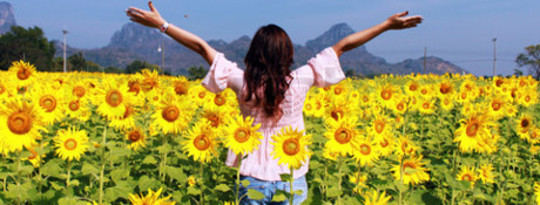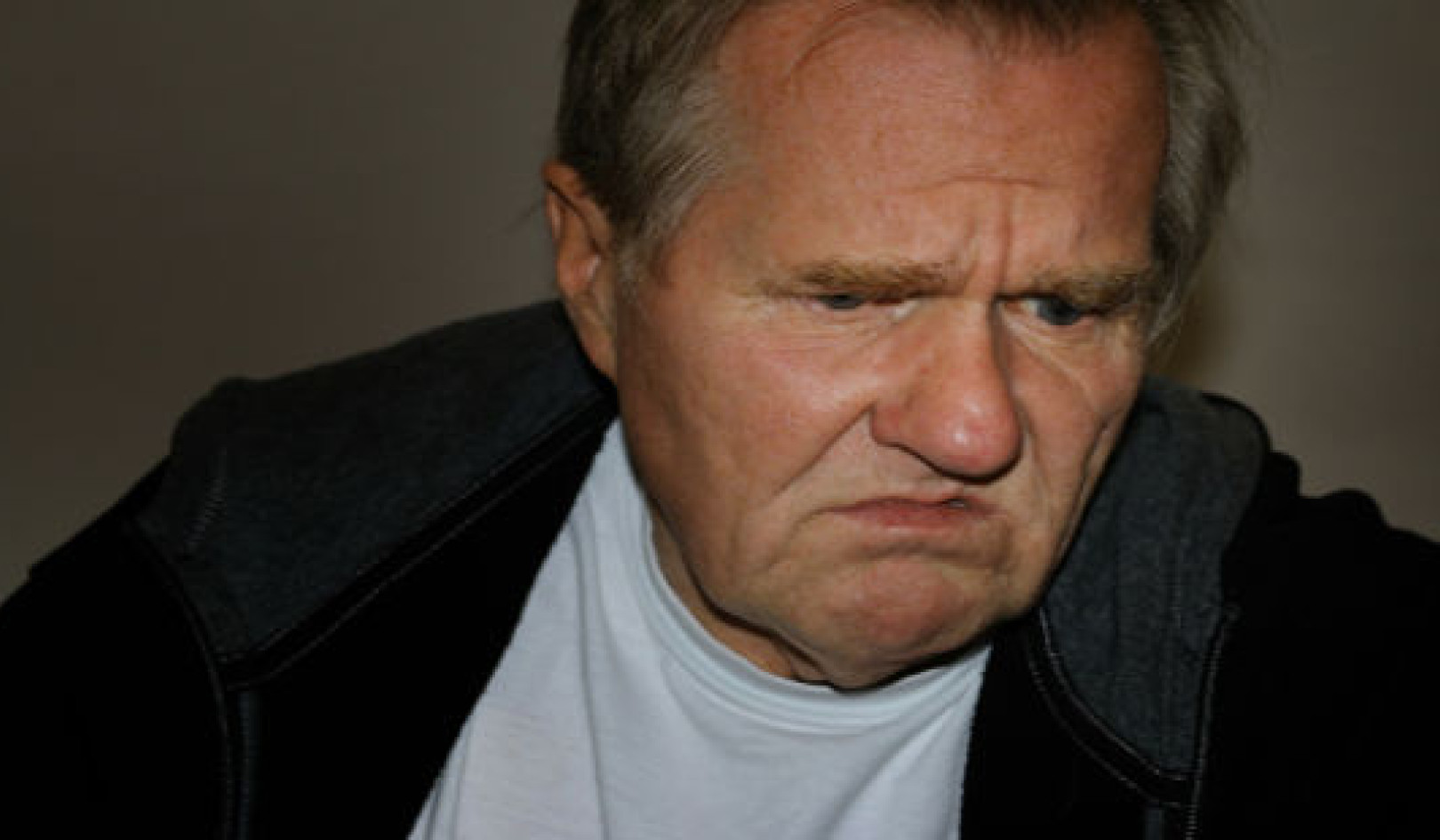
On one wall at Vinnie’s - a hot lunch refuge for the poor of Kingston, Ontario - is a line of Bob Dylan’s that someone has framed and granted prominence.
“You are better than no one, and no one’s better than you.”
I had spent a month at Vinnie’s several years ago as I researched a book on generosity, and the lack of it. The research got me thinking long and hard about the power imbalance between those who disseminate food or clothing or support and those who are forced to ask for it, again and again.
I volunteered at twelve different agencies, one for every month of my year of trying to live generously, a nod to the 1982 film, A Year of Living Dangerously, starring Sigourney Weaver and Mel Gibson. Volunteering isn’t usually dangerous, but there’s one big risk, and it’s one that anyone who works with a charity - or indeed anyone who pays taxes - should be wary of: thinking that Dylan was wrong, and that the poor belong to some other tribe.
What gives poor people away as poor are two things: shoes and teeth. The shoes are often battered running shoes, of little use in winter against cold and deep snow. Many of those who come to Vinnie’s have rotten teeth - an immediate barrier to meaningful work. Where I live in Canada, the state will pay to have bad teeth pulled, but not to replace them - a classic half measure.
Walk a Mile in Their Shoes
During a month in Toronto in mid-winter, I ate at shelters and rode shotgun with community workers, driving around all night and checking on homeless people sleeping on top of grates. An anti-poverty organization called the Toronto Disaster Relief Committee wanted me to act as a mole, so I put a backpack on my shoulder and knocked on shelter doors posing as a homeless man. The Committee wanted to know: were the shelters full? How was I treated? Were the shelters clean?
One night at about 2 am I looked on as a homeless man was approached by a worker in a warming room. The homeless guy stood up, called the other person “sir” and practically saluted. I guess he hadn’t heard Dylan’s line.
What, I wonder, was going on in the worker’s head? Did he think this street guy was somehow the author of his misery? Did he blame him? Why, I wonder, did the worker (who was otherwise kind) not say, “Hey brother, no need to call me sir.”
I remember being in New Orleans and working on a new house that was being built for a woman named Edna, whose previous house had been washed away by Hurricane Katrina. I was putting up plywood over her windows, using hardware that came in a plastic container called a “Hurricane Protection Kit.” The idea is to store the plywood coverings under the house and when the next hurricane threatens, slap the pre-drilled plywood sheets over the protruding bolts and wing-nut them into place. Edna would greet us every morning with a hug and watch as the Habitat for Humanity crew put her new house together.
She was fussy, Edna was. She wanted this trim over the door and not that one, and the kitchen cupboards arrayed just so. At first I thought, “Edna, shouldn’t you be grateful for what we’re doing? Aren’t you looking a gift horse in the mouth?” My second thought (which should have been my first) was “way to go, Edna. I like your dignity, your pride, and your spunk.” That forelock-tugging man in the Toronto warming room had no dignity left. It had been beaten out of him.
What Bootstraps?
If I hear one more politician utter some inanity about the impoverished (“They should learn to pull themselves up by their boot straps” or “I’m tired of these folks claiming to be victims”), I think I will scream. The normalization of poverty, the sleeping in cardboard boxes on the street, the food banks: it’s all such a disgrace on a continent awash in wealth.
People often ask me, which of the twelve volunteering stints stayed with you? Who are you still in touch with? Hands down, it’s Vinnie’s.
This is what I learned about poverty from researching and writing my book.
Learning to Share Across the Great Divide
 One of the greatest challenges we face around the world - maybe the greatest challenge - is sharing wealth. As the gap grows between rich and poor, those with wealth and power become even less able to conceive of how want and desperation look and feel. A toxic brew results. The stuff of revolution in the 19th century. Who’s to say it won’t happen again?
One of the greatest challenges we face around the world - maybe the greatest challenge - is sharing wealth. As the gap grows between rich and poor, those with wealth and power become even less able to conceive of how want and desperation look and feel. A toxic brew results. The stuff of revolution in the 19th century. Who’s to say it won’t happen again?
The greatest need among the poor is decent housing. Drafty, cockroach-infested, noisy and dangerous shelter leaves tenants ill-equipped to face demons such as addiction and mental health issues. Give people true shelter from the storm of their everyday lives. The poor are by necessity peripatetic, since they must wander from this to that church or shelter or agency. For God’s sake, let their wandering cease.
From the Roots Grows the Tree
Admit that luck matters. As I spoke with men and women in shelters, I was forced to compare my own childhood and upbringing with theirs. I had all the advantages: loving parents, supportive siblings, a house where books and education mattered. An extraordinary number of the dispossessed people I talked to had been sexually or physically abused as children, had few or no role models, and little encouragement to do well in school. Life is a sprint, and some of us start close to the starting line and others far behind.
Tax is not a dirty word, so stop rewarding politicians who brag about cutting taxes. Tax cuts almost always punish the poor. Those societies that share their wealth (such as the Scandinavians) are healthier, happier, saner and safer by far.
Every elected politician should spend their first week in office serving at a shelter or a soup kitchen. Learn names, hear stories, and make contact. It will take every oar in the water to end food banks and homelessness: compassionate government, philanthropy, rock stars, Warren Buffett...
Sharing: The Road to Happiness
Genuine happiness involves sharing - your time, your wealth, and your energy. Psychologists have studied this exhaustively. An experience has far more lasting appeal than a new car or dress. I came to loathe the word “volunteer.” What I’m talking about is solidarity and service, which have the power to transform and delight in a way that no purchase ever can. Roll up your sleeves, get involved, and get happy.
Contact is critical. People yearn for human interaction. A panhandler would like your coins but maybe you’d rather not dip into your pocket because you believe that your contribution will go to drugs or alcohol. Fine. But at least engage the person. Ask them how their day is going, comment on the weather, buy them a meal. Treat them as equals, and grant them their dignity. Do not ignore them.
When I was down in the dumps about greed and the state of things, a wise friend who had spent a lifetime as a Red Cross strategist working in disaster zones around the world sat me down. Do not think for a minute about changing world poverty, he said. Think about helping one person, or a dozen in hopes that this dozen can help a dozen more.
How Little It Takes to Make a Difference
Do not judge, do not presume, and do not patronize. I managed, I think, to avoid two out of the three, but I did presume many times. I presumed, for example, that the man at the shelter eating his macaroni and cheese next to me was both homeless and jobless. Wrong. He had a job, he had a place - he just couldn’t manage to pay rent and buy food at the same time.
Don’t presume that you have the answers and that “they” have none. At Vinnie’s, for example, I met a formerly homeless man called John Dickson. In a letter to the agency’s administrator, he described how little it took to make a difference in his life.
“Despite mental health challenges and a very limited income,” he wrote, “I wish to flourish, not just survive.”
John noted that seemingly small items such as a few good books, some art reproductions, glassware and dishes, jigsaw puzzles and board games - all donated to Vinnie’s - had transformed his apartment.
“I have for the first time in a decade,” he continued, “been able to create a peaceful, attractive and edifying environment absolutely singular to me and, most importantly, one in which neither I nor my company are confronted by my poverty . . . With the help of St. Vincent’s, I and others feel . . . less poor. Feeling poor is worse than being poor.”
To me, that insight is profound.
Bob Dylan was only 23 when he wrote “To Ramona.” He could not have imagined that those words would serve as a mantra at a soup kitchen in Ontario. At Vinnie’s there is another sign, this one from “Life’s Little Instruction Book,” by H. Jackson Brown, Jr. - a Tennessee advertising man who gathered words of wisdom and gave them to his college-bound son.
“There are no unimportant jobs,” he wrote. “No unimportant people, no unimportant acts of kindness.”
This article originally appeared on OpenDemocracy
Subtitles added by InnerSelf.com
About The Author
 Lawrence Scanlan has worked in newspapers (literary editor of The Whig-Standard, editor of The Nelson Daily News), magazines (managing editor of Harrowsmith) and radio (producer with CBC Radio’s Morningside as well as Writers & Company). He has won three National Magazine Awards and, as a freelancer, written scores of articles on many subjects, including science, sports, literature, travel and medicine. Lawrence is the author or co-author or twenty books, including A Year of Living Generously: Dispatches from the Front Lines of Philanthropy. For more information go to www.lawrencescanlan.com
Lawrence Scanlan has worked in newspapers (literary editor of The Whig-Standard, editor of The Nelson Daily News), magazines (managing editor of Harrowsmith) and radio (producer with CBC Radio’s Morningside as well as Writers & Company). He has won three National Magazine Awards and, as a freelancer, written scores of articles on many subjects, including science, sports, literature, travel and medicine. Lawrence is the author or co-author or twenty books, including A Year of Living Generously: Dispatches from the Front Lines of Philanthropy. For more information go to www.lawrencescanlan.com
Recommended Book:
A Year of Living Generously: Dispatches from the Frontlines of Philanthropy
by Lawrence Scanlan.
 Can one person make a difference? When we write a cheque to a charity, or run in a fundraiser, or volunteer at a food bank, we’re part of the solution, aren’t we? Lawrence Scanlan went on a year long odyssey to discover the answers and uncover the true face of philanthropy. Finding hope and humor every step of the way, he nevertheless confronts some uncomfortable truths about direct engagement and the societal divide that allows most of us to look away. A Year of Living Generously is a passionate call for greater connection and genuine commitment from us all.
Can one person make a difference? When we write a cheque to a charity, or run in a fundraiser, or volunteer at a food bank, we’re part of the solution, aren’t we? Lawrence Scanlan went on a year long odyssey to discover the answers and uncover the true face of philanthropy. Finding hope and humor every step of the way, he nevertheless confronts some uncomfortable truths about direct engagement and the societal divide that allows most of us to look away. A Year of Living Generously is a passionate call for greater connection and genuine commitment from us all.
Click here for more info and/or to order this book on Amazon.























